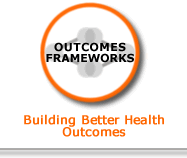 |
E .Evidence for interventions to improve life chances and individual and community wellbeing ( Prevention model) |
Summary Limited highly processed evidence and limited review-level evidence and Scottish policy directives support early years interventions, access to community resources, including good-quality housing, education and training to enhance social capital and improve health and social outcomes to reduce inequalities and associated acknowledged vulnerabilities for onset of (problem)drug use. Rationale As part of the Mental Health Outcomes Framework (NHS Health Scotland 2012) a chain of change ''Increasing social inclusion and decreasing inequality and discrimination' is outlined in logic model 4 of the framework. The evidence summary supporting the rationale for social exclusion activities can be accessed from the following logic model link: Evidence summary on social exclusion. The full outcomes framework, tools and resources, for mental health are available here: www.healthscotland.com/OFHI/MentalHealth/content/MHtools.html
Provision of housing to improve health Evidence suggests housing provision should optimally be combined with other support services. [1]
Scottish policy and practice note Commission on the Future Delivery of Public Services (2011) [2] outlines key elements of a programme of reform to improve Scotland’s public services to improve the quality of life and outcomes for the people of Scotland. The key objectives of the reform programme are to ensure that:
In describing the challenges ahead in addressing the social determinants of health and tackling inequalities, NHS Health Scotland’s Health Inequalities Policy Review for the Scottish Ministerial Task Force on Health Inequalities [3] highlights the key role and contribution of Community Planning Partnerships (CPPs) at the local level. The policy review report states that the CPP role is to bring together partners to agree priorities and shared outcomes, and to pool resources around these shared outcomes. There is a need for CPPs to be explicit about the roles and contributions of the partnerships that sit within the umbrella context of community planning, for example Health and Social Care Partnerships, Alcohol and Drug Partnerships, Integrated Children’s Services Partnerships. There are opportunities for CPPs to take on board the following:
The policy review report concludes by stating that closing the inequalities gap and lessening the inequalities gradient would bring greater cohesion, economic progress and better health in Scotland, lowering the burden on individuals, communities and public services and contributing to social equity.
References:
|

